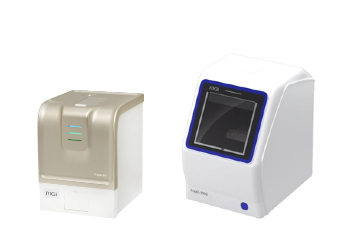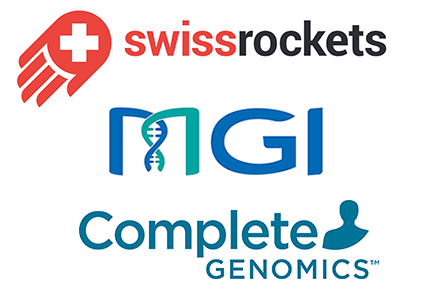Monkeypox disease has currently been identified in many countries outside the West and Central Africa with frequent occurrence of human-to-human transmission. The WHO declared monkeypox a Public Health Emergency of International Concern (PHEIC) on July 23. This neglected zoonotic monkeypox has once again become the focus of the global attention.
To prevent the import and transmission of monkeypox virus, China has alerted the country and issued a technical guide for monkeypox control and prevention in China on July 1, 2022. It helps to achieve early detection, early reporting, early isolation, and early treatment, which further strengthens the symptom monitoring of passengers and immigrants from epidemic areas to control the human-to-human transmission of monkeypox virus.
On September 19, China CDC Weekly reported the first imported case of monkeypox in mainland China: A Chinese man returned to China on September 14 and was identified as a suspected case of monkeypox by Chongqing CDC. The man had previously experienced dry and itchy throat, fever, red rash, and pustules on his right ankle.

On September 16, the clinical samples collected of the man were sent to China CDC for qPCR testing. The whole genome sequencing was completed based on the latest version of MGI genetic sequencer DNBSEQ-G99. The genetic sequencing results showed that the monkeypox virus (China-CQ202209) infected the man is the B.1 branch of West Africa virus strain, which is highly consistent with the sequencing results of Chongqing CDC. Meanwhile, it is also highly homologous with the virus strain found in Germany on June 21, 2022 (GISAID ID: EPI_ISL_13889435). These results confirm this case as the first imported case of monkeypox in Mainland China. It is also the fifth case of human monkeypox virus infection reported in China. Several other cases of imported human monkeypox virus infection were respectively reported in Taiwan China and Hong Kong China.

Notably, MGI's DNBSEQ-G99 contributed to this retrospective sequencing to obtain a highly reliable whole genome sequence of the virus strain in a short time. When conducting qPCR testing for sample with a Ct value of about 21, three different read-length metagenome sequencing statistics of monkeypox virus-specific reads accounted for about 0.35% on average. The analysis results showed that the average depth of the monkeypox virus genome was about 35X at the read length of SE40, 110X at SE100, and 200X at PE100, with more than 99.03% coverage above 100X.
DNBSEQ-G99 has achieved the ultimate improvement of sequencing efficiency, quality and delivery capability through high-level integration of the fluid system and reagent optimization, the sequencing reaction incubation process takes merely seconds instead of minutes. In addition, equipped with triangular matrix high-density flow cell, self-developed high-performance optical equipment, and high-precision temperature control system, the output time of PE150 sequencing data has been shortened to within 12 hours.

Meanwhile, the multi-point data output mode of DNBSEQ-G99 (bioanalysis by sequencing, BBS) can further shorten the delivery time. The first batch of raw reads can be obtained within 2.5 hours and the sequencing read length is not limited, which is more suitable for urgent and multiple testing scenarios in the public health system. The BBS mode of DNBSEQ-G99 was adopted for monkeypox virus tracing this time. The first batch of raw reads results was obtained with 9 hours, contributing to greatly improving the tracing efficiency and response speed of the public disease control system.
To address the needs for rapid identification and traceability of new unknown pathogens, MGI has developed a high-throughput sequencing platform integrated with a pathogen detection system, covering the whole process from sample to report output. The system is compatible with DNBSEQ-G99, DNBSEQ-E25, DNBSEQ-G400 and DNBSEQ-G50 sequencers and MGI provides a variety of hardware and compatible reagent kits for the system to support an extensive range of pathogen testing.
MGI's DNBSEQ-G99 completed the whole process from sample library preparation, sequencing to assembly analysis of monkeypox virus within 11.5-16 hours. To further improve the accuracy of monkeypox virus traceability, MGI also developed a customized multiple PCR panel (ATOPlex MPXV) based on its ATOPlex platform for rapid identification and traceability of monkeypox virus strains.
As one of the few companies in the world that can independently develop and mass-produce clinical high-throughput gene sequencers, MGI's genetic sequencers, laboratory automation and laboratory management systems have been deployed to more than 80 countries and regions worldwide to support the global COVID-19 pandemic responses.
*Unless otherwise informed, StandardMPS and CoolMPS sequencing reagents, and sequencers for use with such reagents are not available in Germany, Spain, UK, Hong Kong, Sweden, Belgium, Italy, Finland, Czech Republic, Switzerland, Portugal, Austria, and Romania. No purchase orders for StandardMPS products will be accepted in the USA until after January 1, 2023.



 Sequencer Products: SEQ ALL
Sequencer Products: SEQ ALL















 Technologies
Technologies Applications
Applications Online Resources
Online Resources Data Bulletins
Data Bulletins Service & Support
Service & Support Global Programs
Global Programs Introduction
Introduction Newsroom
Newsroom Doing Business With Us
Doing Business With Us Creative Club
Creative Club













